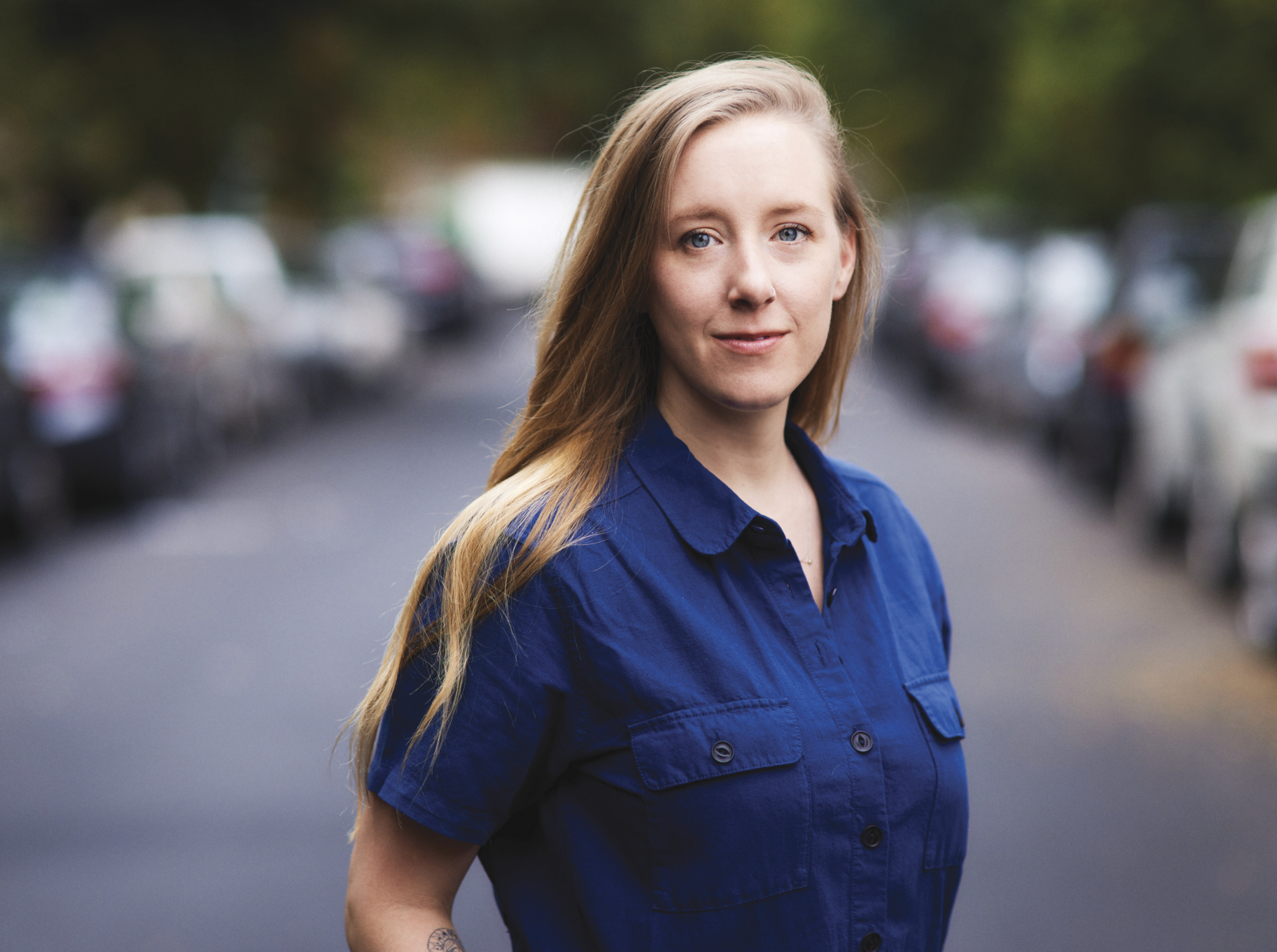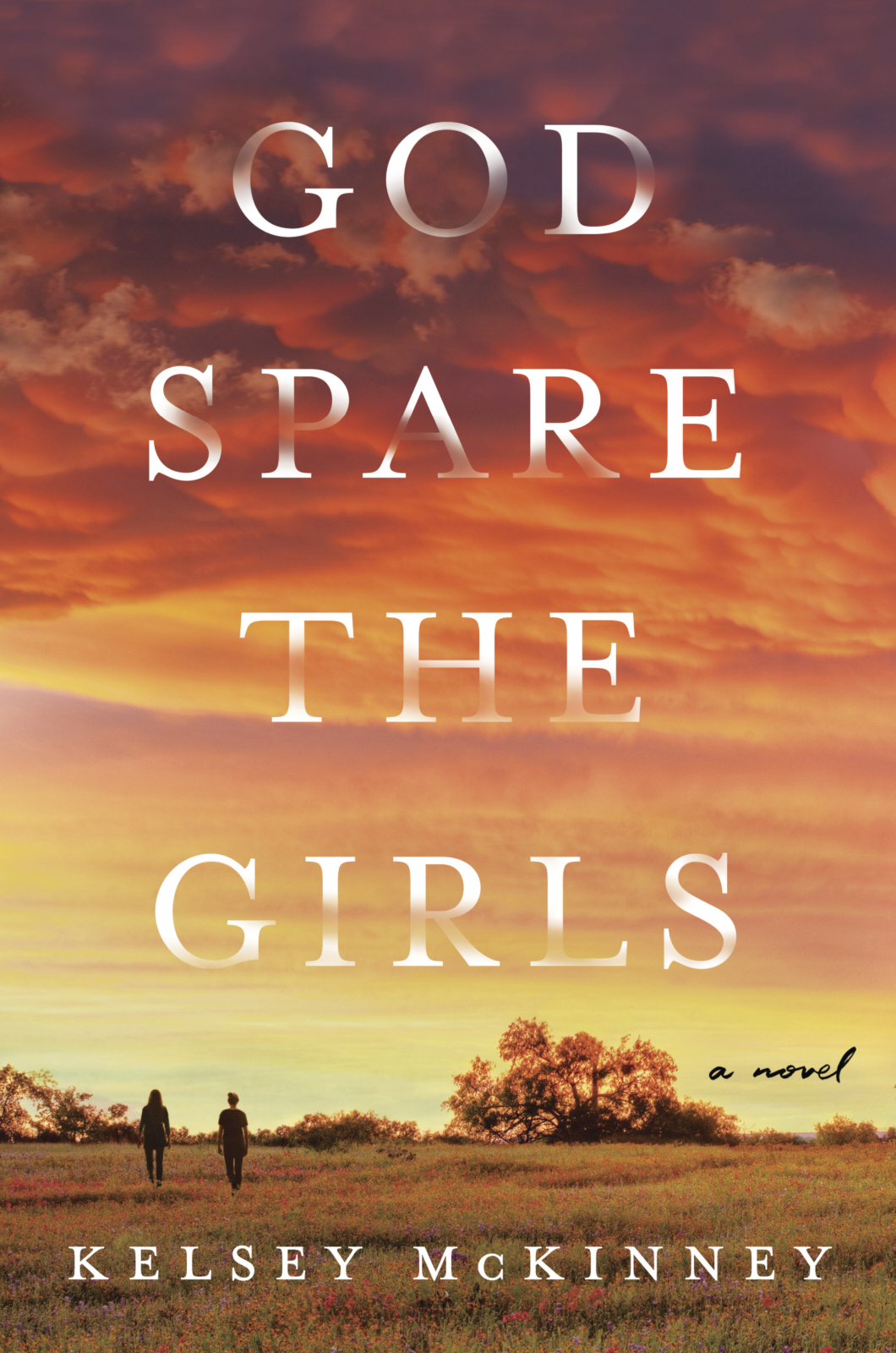New Coming-of-age Novel from Longhorn Author Tackles Questions of Faith and Family

In Kelsey McKinney’s debut novel, the Texas landscape—sun-baked soil, vast blue skies, and oppressive heat—serves as a vibrant backdrop for the secrets of the Nolan sisters.
Released June 22, God Spare the Girls explores evangelical culture through the eyes of Pastor Luke Nolan’s daughters, each on the precipice of a life-changing season when decades of family secrets and a salacious scandal threaten to crumble the faith and the institution that raised them. On their family’s ranch in North Texas, they spend the summer reexamining their childhood, one lived under a microscope as the daughters of a prominent evangelical pastor.
McKinney, BA ’14, co-owner and a features writer at Defector.com, took inspiration from her own childhood, growing up as part of a Texas evangelical church. While the novel’s plot is fictional, she sends her characters on a quest to answer a question she knows intimately: What happens when you question everything you grew up believing to be true? The result is a bittersweet exploration of how place and family can take two sisters on diverging paths.
The Alcalde spoke to McKinney about her writing process, Texas literature, and her own experiences in an evangelical church.

Why this topic for your debut novel?
I started with a scene that’s not even in the book anymore: Luke Nolan’s origin story. At the time I was really interested in how these men gather power and bolster themselves up and where that comes from. But as I started working in that space, I realized I don’t actually care about that at all. I care about the repercussions of that behavior on the people around them.
The characters and plot feel drawn from headlines about megachurch pastors who are mired in scandal. Were you inspired by real events?
When I figured out what I was writing about, I set a Google alert for “pastor sex scandal” and I read everything. I read blogs, I talked to women who had been the Mary Campbell in their situation, I talked to women who run a blog that’s all about revealing issues in the Southern Baptist church because I wanted to get it right. And I wanted to make sure it rang true.
There is so much emphasis on landscape and culture; Texas feels like a character in the novel. What made you want to set the story in your home state?
Most of the books that get all the hype are set in a specific neighborhood in Brooklyn, and while I love a lot of those books, I never saw anything I knew in them. I would see emotions I knew, but not imagery or smells even. Those things felt distant for me and when I started working on this book, I was really homesick so a lot of the descriptions of the sky are me sitting in my tiny Washington, D.C., apartment thinking about this vast sky I grew up under. So in that sense it’s almost mythologized, the landscape of the state—this big, broad, giant space we all want to always be in. I know that Texas is not perfect, but I will always love it. And I love Texas literature, so when I started realizing this was a book and not just a bunch of scribbles on a yellow legal pad I kept under my bed, I knew I wanted it to be there because that is the culture I grew up with and love. But also because the tradition of Texas literature has not included this yet. There is a lot of stuff happening in the state that no one wants to talk about in literature because most of our writers don’t have these experiences and I did, so I felt like I could do it with credibility.
Truth, redemption, and forgiveness are all timely themes.
Something I really wanted to work through is: When do you have to earn forgiveness, and if so, how? I think the church does teach that it’s not your job to judge, it’s the Lord’s job; and you are taught to forgive and forget. That is the verse that is hammered into a lot of young children’s brains. And I wanted to question that: At what point do you need to forgive? That’s not really how people work. That’s maybe how an omniscient being could work but for most people forgiving and forgetting an immense amount of hurt is difficult to do. And so, in terms of who gets to decide when someone is forgiven, I wanted to ask, not only when you decide [to forgive] but when do you decide that you get to choose [if you forgive]? People around [the girls in the novel] are telling them how they need to respond to this situation, and it takes them a long time to figure out they get to decide. Other people don’t get to dictate when you decide to forgive someone. That is the nuance I wanted to fixate on: When do you realize you have the agency, and you don’t have to [forgive]? If you choose to give grace, you can.
What do you hope people take away from this book?
In my wildest dreams it would show people something they recognize and give them the space to ask questions. I don’t think there’s a right response to this book and I don’t think there are right answers in general to most things. Women are often told not to question things, to accept what you’re given and be grateful and part of the reason the girls’ decisions diverge at the end is that I wanted to make it clear neither of them are right. You have to make the decisions that are right for you and you have to decide you are allowed to make those decisions. That’s the point, I hope.
This interview has been edited and condensed.
Credit: Emilio Madrid





